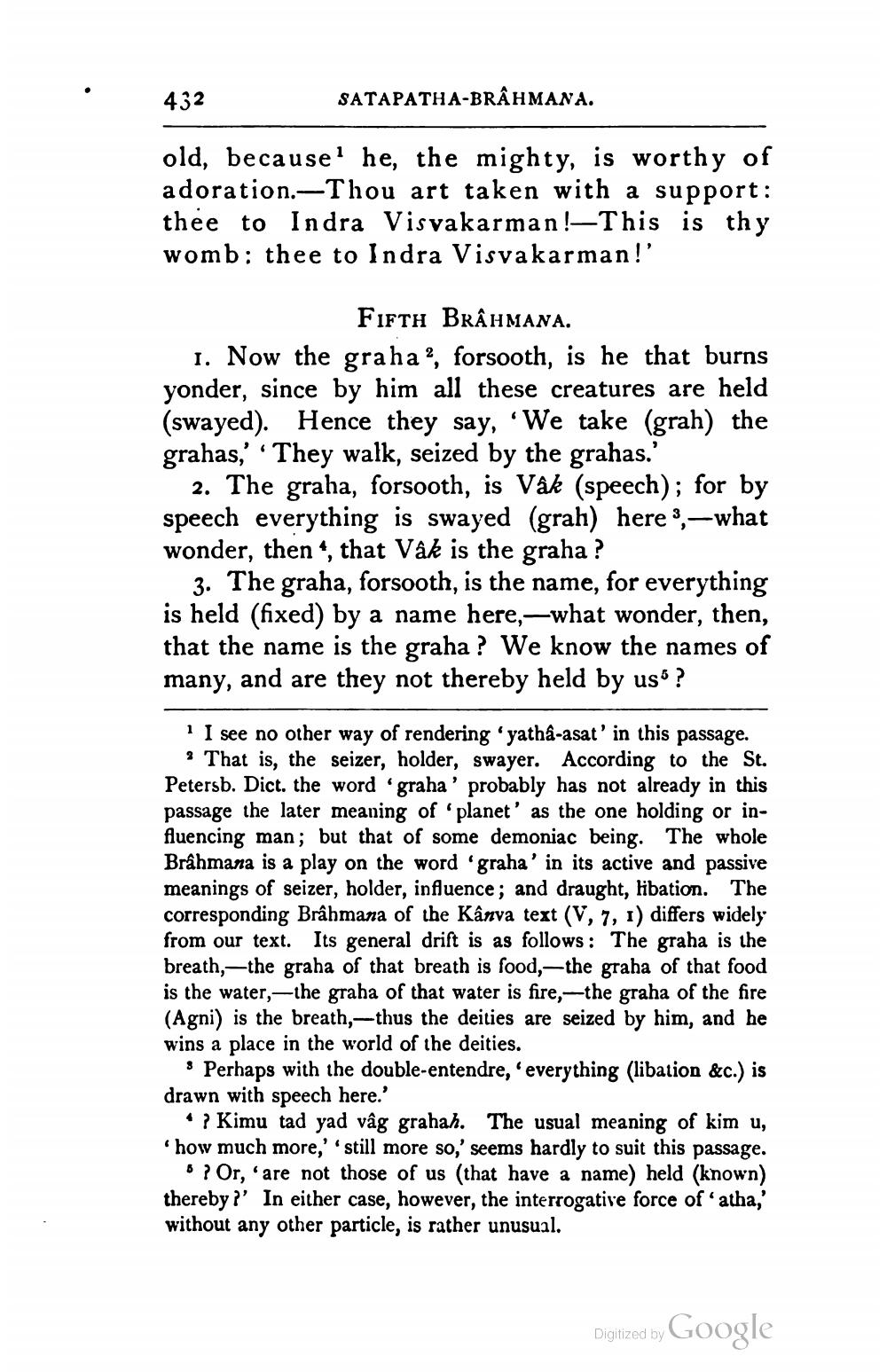________________
432
SATAPATHA-BRÂHmana.
old, because he, the mighty, is worthy of adoration.—Thou art taken with a support: thee to Indra Visvakarman!—This is thy womb: thee to Indra Viswakarman!'
Fifth BRAHMANA. 1. Now the graha ?, forsooth, is he that burns yonder, since by him all these creatures are held (swayed). Hence they say, 'We take (grah) the grahas,' “They walk, seized by the grahas.'
2. The graha, forsooth, is Vâk (speech); for by speech everything is swayed (grah) here 3, -what wonder, then “, that Vâk is the graha ?
3. The graha, forsooth, is the name, for everything is held (fixed) by a name here,—what wonder, then, that the name is the graha ? We know the names of many, and are they not thereby held by us ?
1 I see no other way of rendering 'yatha-asat' in this passage.
? That is, the seizer, holder, swayer. According to the St. Petersb. Dict. the word 'graha' probably has not already in this passage the later meaning of 'planet' as the one holding or influencing man; but that of some demoniac being. The whole Brâhmana is a play on the word 'graha' in its active and passive meanings of seizer, holder, influence; and draught, libation. The corresponding Brahmana of the Kanva text (V, 7, 1) differs widely from our text. Its general drift is as follows: The graha is the breath, the graha of that breath is food, the graha of that food is the water,—the graha of that water is fire,-the graha of the fire (Agni) is the breath,-thus the deities are seized by him, and he wins a place in the world of the deities.
Perhaps with the double-entendre, everything (libation &c.) is drawn with speech here.'
. ? Kimu tad yad vậg grahah. The usual meaning of kim u, how much more,' still more so,' seems hardly to suit this passage.
o? Or, are not those of us (that have a name) held (known) thereby?' In either case, however, the interrogative force of atha,' without any other particle, is rather unusual.
Digitized by Google




